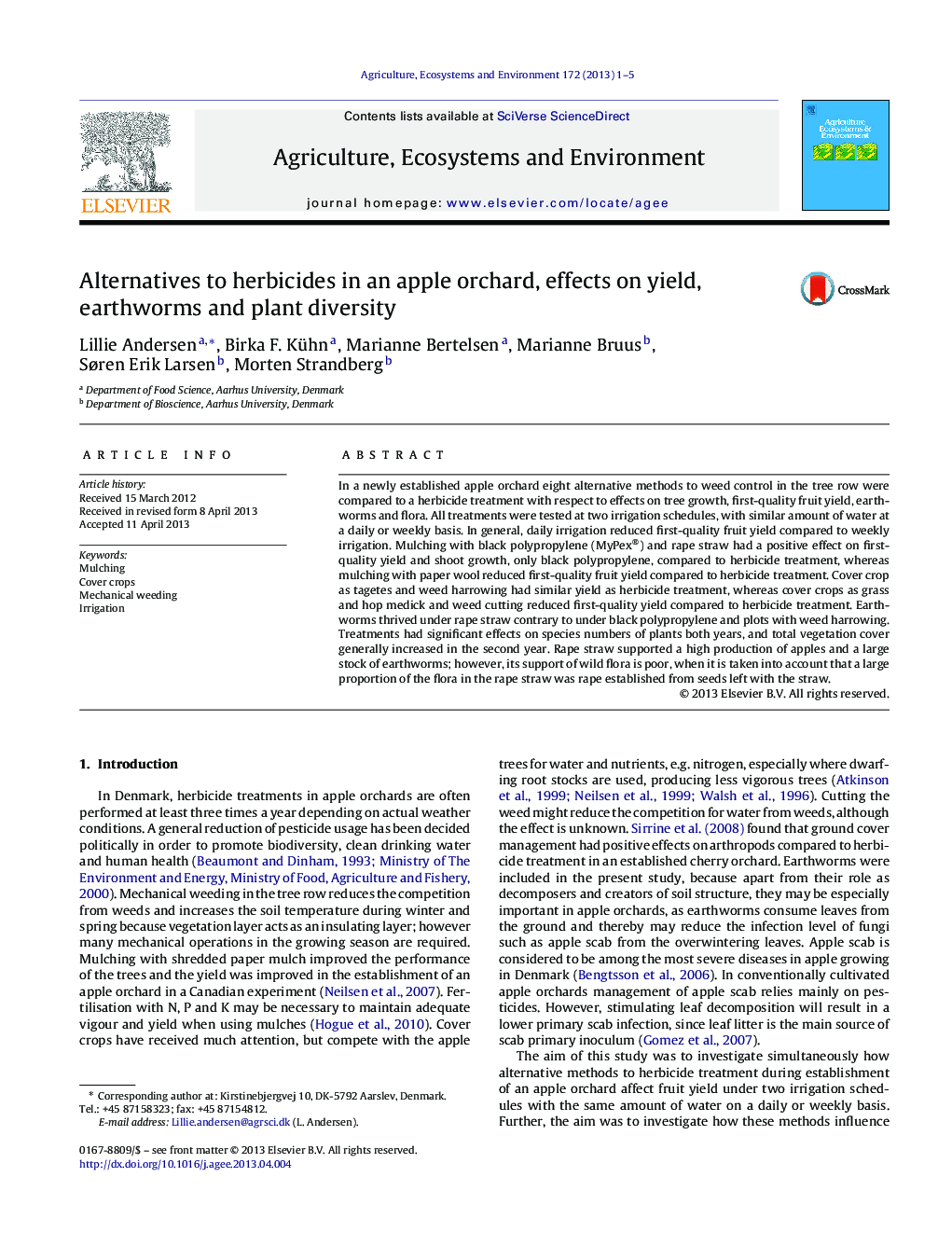| Article ID | Journal | Published Year | Pages | File Type |
|---|---|---|---|---|
| 2414235 | Agriculture, Ecosystems & Environment | 2013 | 5 Pages |
•Weekly irrigation improved yield compared to daily irrigation.•Mulching with black polyprolylene and rape straw improved yield.•Earthworms thrived under rape straw compared to black polypropylene.•Hop medick enriched plant diversity compared to herbicide.
In a newly established apple orchard eight alternative methods to weed control in the tree row were compared to a herbicide treatment with respect to effects on tree growth, first-quality fruit yield, earthworms and flora. All treatments were tested at two irrigation schedules, with similar amount of water at a daily or weekly basis. In general, daily irrigation reduced first-quality fruit yield compared to weekly irrigation. Mulching with black polypropylene (MyPex®) and rape straw had a positive effect on first-quality yield and shoot growth, only black polypropylene, compared to herbicide treatment, whereas mulching with paper wool reduced first-quality fruit yield compared to herbicide treatment. Cover crop as tagetes and weed harrowing had similar yield as herbicide treatment, whereas cover crops as grass and hop medick and weed cutting reduced first-quality yield compared to herbicide treatment. Earthworms thrived under rape straw contrary to under black polypropylene and plots with weed harrowing. Treatments had significant effects on species numbers of plants both years, and total vegetation cover generally increased in the second year. Rape straw supported a high production of apples and a large stock of earthworms; however, its support of wild flora is poor, when it is taken into account that a large proportion of the flora in the rape straw was rape established from seeds left with the straw.
